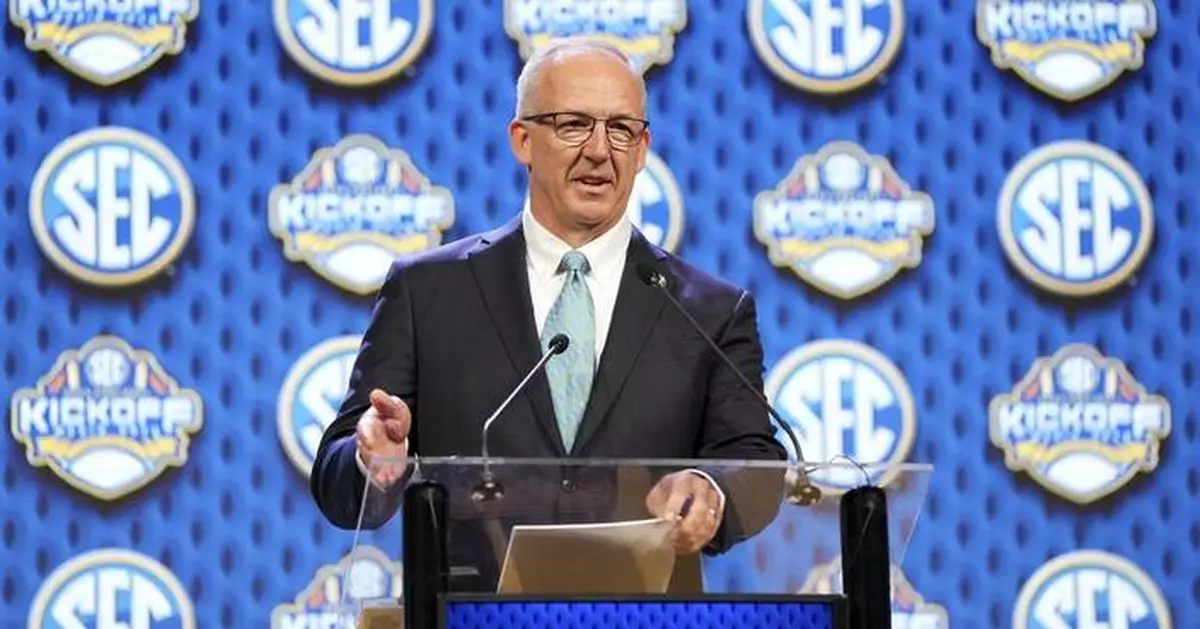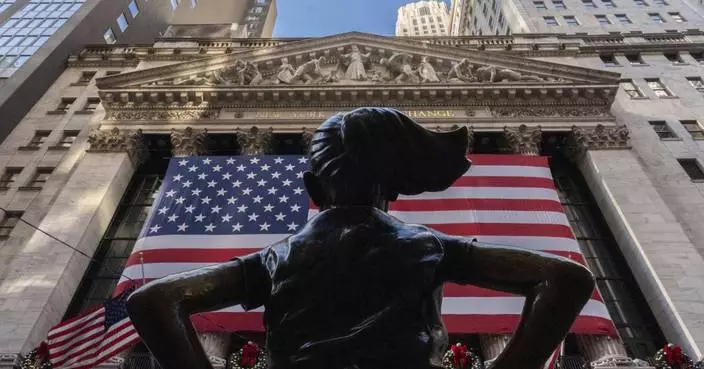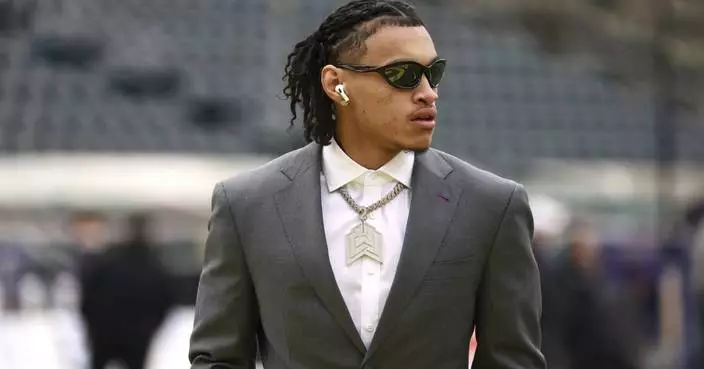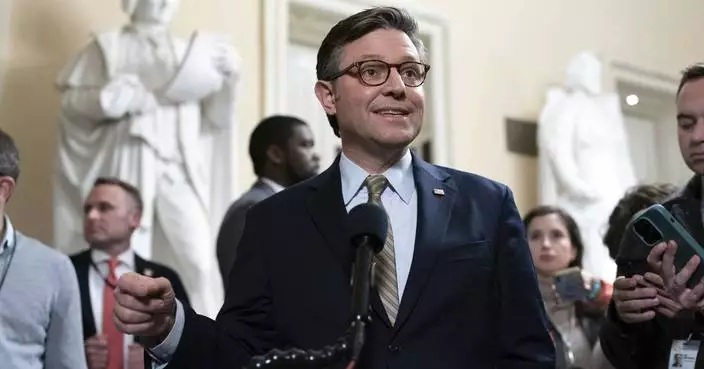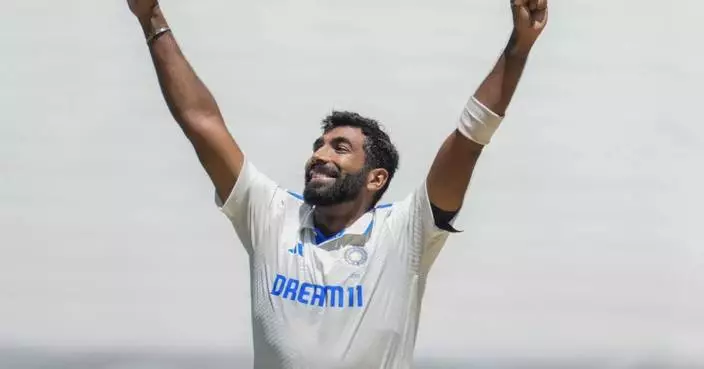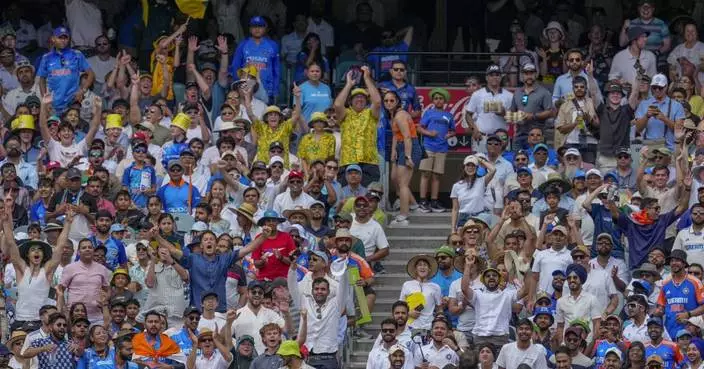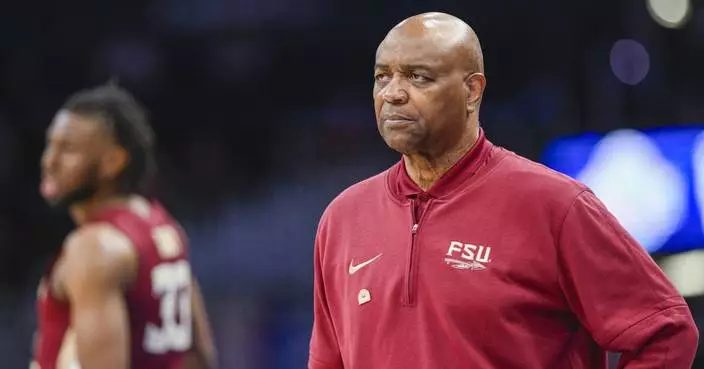The Big Ten and SEC already have the upper hand in college football. At meetings this week, their leaders are setting the stage to exact even more control over the sport's future.
Among the talking points when an advisory group made of members from the conferences meets in Nashville, Tennessee, are the future of the expanded college football playoff and a possible scheduling agreement between the two conferences that would indirectly make it harder for the rest of college football to compete for the 12 or possibly 14 spots available in the postseason.
No final decisions are expected this week, though the discussions are expected to be a jumping-off point for more definitive moves to come. Here's a look at some of the topics:
The new 12-team playoff makes its debut this season. The top five conference winners, as ranked in the College Football Playoff committee's selection poll on Dec. 8, will earn spots in the postseason, followed by the next seven highest-rated teams.
It's likely that two teams will be added to the format beginning in 2026, which is also when ESPN's six-year, $7.8 billion contract to televise the playoffs begin. Big Ten and SEC leaders have made proposals to get three or four automatic spots in the new playoff. Neither idea has been popular among the rest of the conferences, but the SEC and Big Ten have negotiated to have more control over what comes next.
In possibly the most simple-to-digest sign of the power these two conference wield — they have 15 teams in this week's AP Top 25.
Connected to the playoff format is a possible change in scheduling that would add an interconference Big Ten-SEC game to each team's schedule.
Part of what the conferences would like to achieve with the new postseason format and more automatic bids would be to eliminate the influence of the selection committee, whose poll doles out at-large berths.
To whatever extent the subjective poll remains part of the formula, a Big Ten-SEC matchup in the regular season would ostensibly help both conferences by improving their strength of schedule, which is a factor in the poll. It would also shrink the number of available opportunities schools from other conferences would have against these teams from the top two leagues.
On Monday, a judge approved a plan that sets in motion the system for schools to eventually make direct payments to athletes. It will change the fundamental nature of college sports, and the two biggest conferences will feel as big an impact as anyone.
Specifically, the athletic departments will have to figure out how to replace up to $21.5 million they could be paying athletes as part of a first-of-its-kind revenue-sharing agreement. This is where payouts from the football playoff and even revenue from an extra marquee regular-season game could come into play, though that won't fully solve the problem.
“There’s two ways to get there,” Illinois athletic director Josh Whitman said at the Big Ten's recent basketball media days. “You can either make more money or you can spend your money differently, and we’re working very aggressively on both of those fronts to put ourselves in a position to fully participate in the revenue share when it opens up next year.”
The leaders also have to take educated guesses about how other legal and legislative action could impact them in the future. For instance, if players are deemed to be employees of the schools, it would add another layer of expense for the schools while potentially giving athletes access to school-funded health insurance and other benefits.
One news tidbit that could become a trend: Last month's announcement that Tennessee was slapping a 10% “talent fee” onto the price of next year's season tickets to help offset costs associated with the revenue-sharing plan.
Though not on their agenda, the possibility of a super league hovers over everything in college sports these days.
Earlier this month, a group called “College Sports Tomorrow” unveiled its vision for a two-tiered, 136-team mega-league with divisions and a 24-team playoff.
“This is not trying to create minor league professional football,” one of the group's leaders, former MLS deputy commissioner Mark Abbott, told the Wall Street Journal. “This is about the student athlete and actually trying to enhance the college experience for everybody.”
Then, this week, Yahoo Sports reported on a potential super league involving the top four conferences that would pump $9 billion in private equity money into the sport.
There's not enough room to list all the roadblocks in the way of these sort of changes — tops on the list might be that SEC commissioner Greg Sankey has indicated he has no interest — but at the rate college sports are changing these days, it's hard to say never.
Get poll alerts and updates on the AP Top 25 throughout the season. Sign up here. AP college football: https://apnews.com/hub/ap-top-25-college-football-poll and https://apnews.com/hub/college-football
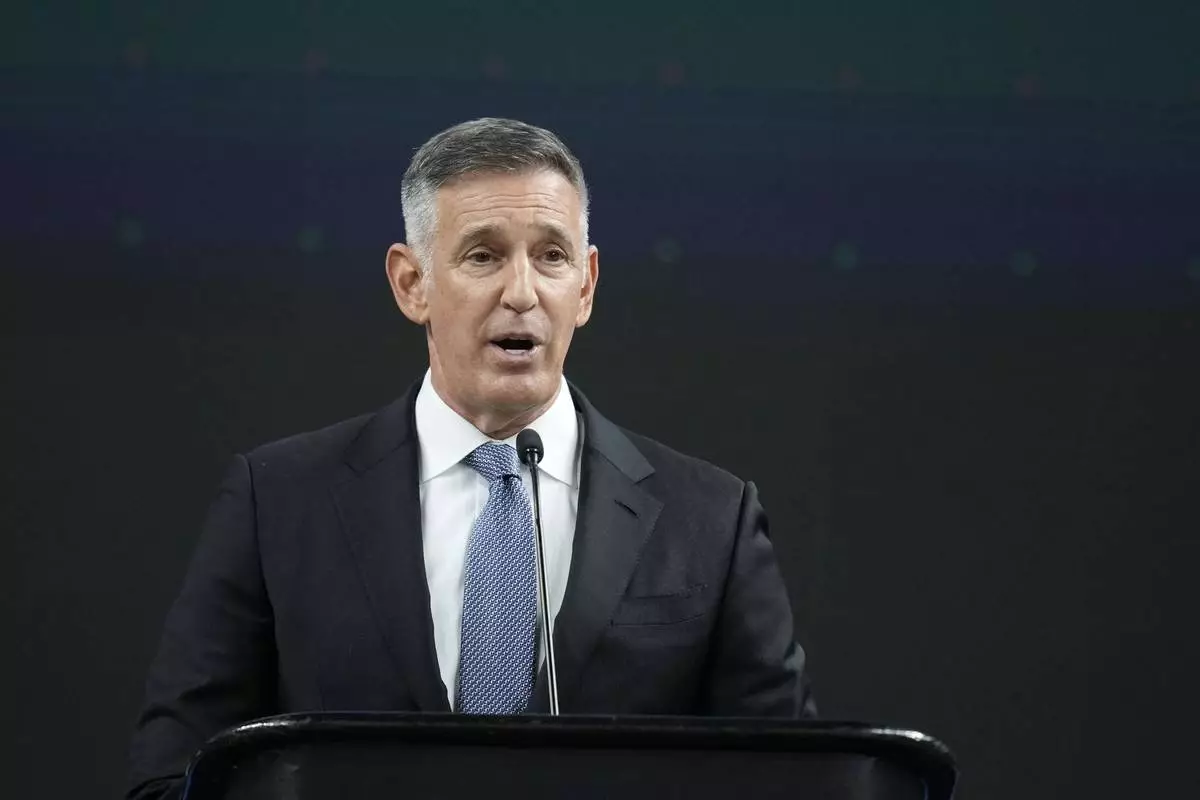
FILE - Big Ten Commissioner Tony Petitti speaks during an NCAA college football news conference at the Big Ten Conference media days at Lucas Oil Stadium, July 23, 2024, in Indianapolis. (AP Photo/Darron Cummings, File)
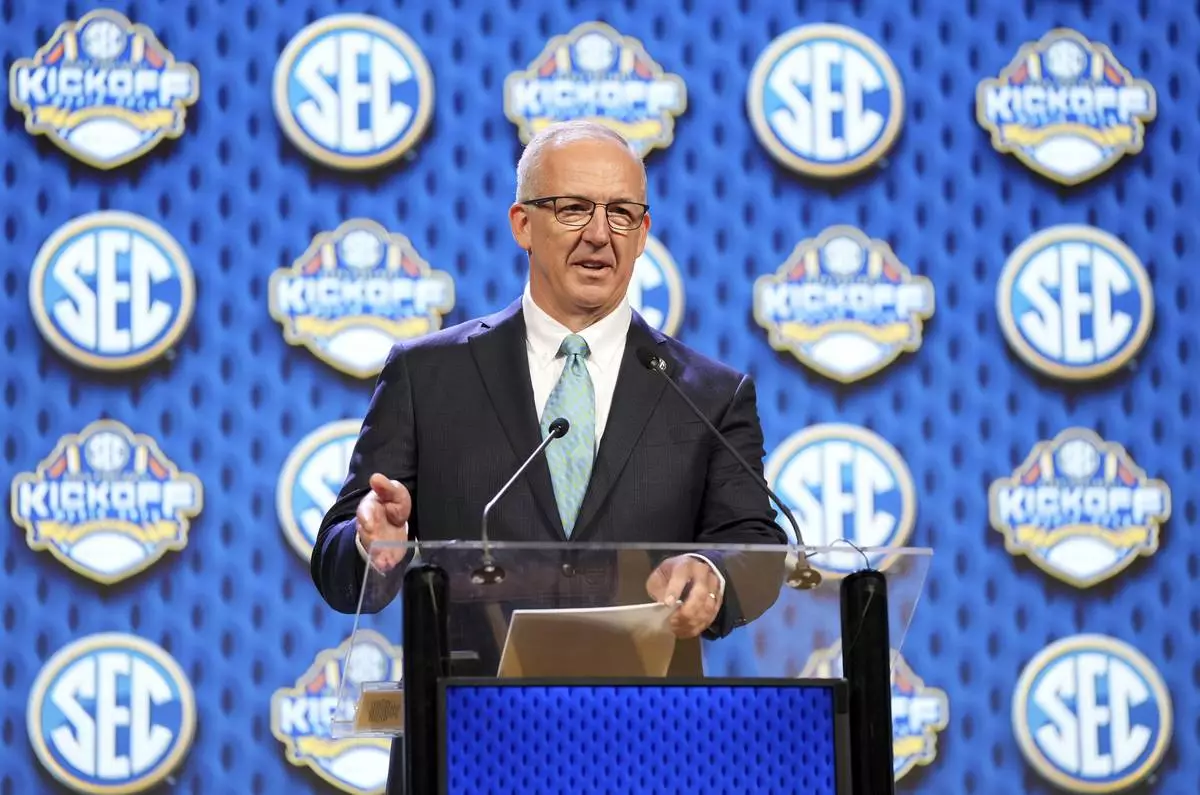
FILE - Southeastern Conference commissioner Greg Sankey speaks during SEC NCAA college football media days, July 15, 2024, in Dallas. (AP Photo/Jeffrey McWhorter, File)


